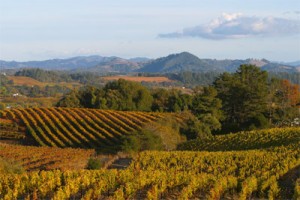 The term “sustainable” means to endure the long-term management responsibilities of resource and land use so that present and future generations are able to reap the benefits. This includes meeting present needs while simultaneously considering the impact of grazing habits, consumption, waste, wildlife conservation, land management and more. The overall quality of the natural resources left for future generations to enjoy and the responsibility that land owners possess in relation to the rest of the world must be factored into the daily decisions and habits of ranchers, growers and farmers alike.
The term “sustainable” means to endure the long-term management responsibilities of resource and land use so that present and future generations are able to reap the benefits. This includes meeting present needs while simultaneously considering the impact of grazing habits, consumption, waste, wildlife conservation, land management and more. The overall quality of the natural resources left for future generations to enjoy and the responsibility that land owners possess in relation to the rest of the world must be factored into the daily decisions and habits of ranchers, growers and farmers alike.
The requirements for sustainable production include environmentally friendly, socially responsible and economically sensible practices, with perhaps the largest concern being the local landscape and way of life of the plants and animals in any particular region. That is where recycling, composting and solar and wind energy greatly aids farms, vineyards and ranches, as well as the future generations who stand to benefit from the land and resources we leave behind. In addition to the aforementioned practices, slight changes in grazing routine and grazing management, combined with fewer chemicals, are great ways to do your part and save a little coin at the same time. The ranging habits of cattle, if performed correctly, can increase plant growth, help prevent erosion, reduce waterway damage, promote wildlife diversity, increase biomass and provide fertilization through nitrogen-rich urine and feces – and these are only some of the positive impacts.
Sustainable practices are an ongoing journey, with new and improved techniques popping up each year. These measures include fostering the soil, respecting native ecosystems and reducing environmental impact. Also, water conservation, erosion control, the implementation of beneficial insects, reduction or total refusal of herbicides and pesticides, composting, recycling and overall reducing the use of resources are integral in sustainability. With respect to the environment, the best practices and quality assurance is met with customer satisfaction, both locally and globally.
Consumer Stamp of Approval
With the recent and steady rise in popularity of sustainable practices comes profit and the potential to save growers, farmers and ranchers money. In general, consumers are often willing to spend a little more for the higher quality products associated with sustainable practices. For example, naturally-raised and hormone-free meat (free range chickens and free roaming, grass fed cows), non-GMO products, pesticide and herbicide free produce and sustainably-produced wool are all products that folks are willing to spend a little more money on for the quality.
A Little More
The sustainable ranching trend has even reached Hollywood and the film making industry. The film “The New Frontier: Sustainable Ranching in the American West” is a short documentary focusing on the controversy and social, political and scientific implications of sustainable ranching efforts. Here is the summary, according to the film’s website: “Shot on three family ranches in the Rockies of Colorado, southern New Mexico and Central Texas Blackland Prairie, the film examines cultural, scientific, political and philosophical considerations concerning environmental stewardship, the traditions of ranching families and communities, collaborations between ranchers, ecologists and environmentalists, and the controversial but often successful use of grazing animals to improve land and animal water biodiversity and healthy watersheds.” Watch the film trailer here: http://www.newfrontierfilm.com
All in all, sustainability is a lifestyle. It is the decisions you make daily as a person and/or a business to help humans and nature co-exist harmoniously. The main goal of these practices is simple: to reduce the use of natural resources and to help sustain a healthy environment for ourselves, our children, their children, and so on.


